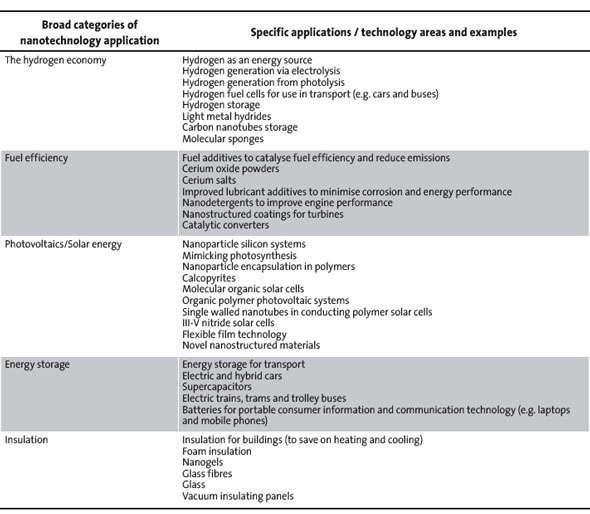Posted: December 15, 2008
Nanotechnology solutions to climate change
(Nanowerk Spotlight) Climate change is high on the global agenda. While the
http://unfccc.int/meetings/cop_14/items/4481.php">United Nations Climate Change Conference in Poznan, Poland, in December 2008, is an important step towards achieving an international agreement on climate change scheduled for the
http://www.cop15.dk/en">upcoming Conference of the Parties in Copenhagen at the end of 2009, policy makers and practitioners alike are increasingly looking for practical solutions.
A new report by the United Nations University
http://www.ias.unu.edu/">Institute of Advanced Studies (UNU-IAS) offers three innovative solutions in responding to climate change, namely nanotechnology, ocean energy and forestry. The 46-page report (
http://www.ias.unu.edu/resource_centre/Innovation%20in%20Responding%20to%20Climate%20Change_UNU-IAS%20Report.pdf">Innovation in Responding to Climate Change: Nanotechnology, Ocean Energy and Forestry; pdf download, 2.6 MB) goes beyond the technological, biological and procedural aspects of these solutions by critically assessing the opportunities and challenges that each type of innovation presents. This report addresses the question why these innovations – despite their large potential to reduce emissions, ocean energy alone could cover the world's electricity needs – have not yet reached the stage of mass commercialization.
As far as nanotechnology's role in responding to climate change is concerned, the report correctly states that nanotechnologies are a platform technology and as such, by itself, nanotechnology will not have a dramatic impact on climate change – but its incorporation into larger systems, such as the hydrogen based economy, solar power technology or next generation batteries, potentially could have a profound impact on energy consumption and hence greenhouse gas emissions.
The report highlights the role of nanotechnology in innovation in three broad categories, namely the development of efficient hydrogen powered vehicles, enhanced and cheaper photovoltaics or solar power technology, and the development of a new generation of batteries and supercapacitors.
…
